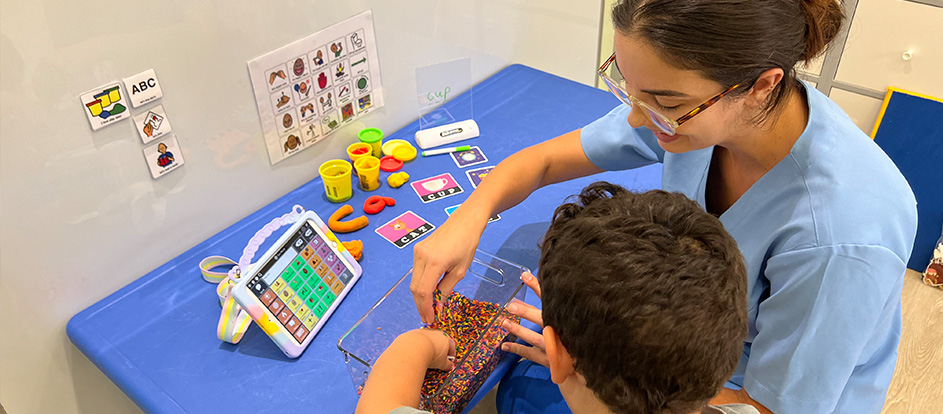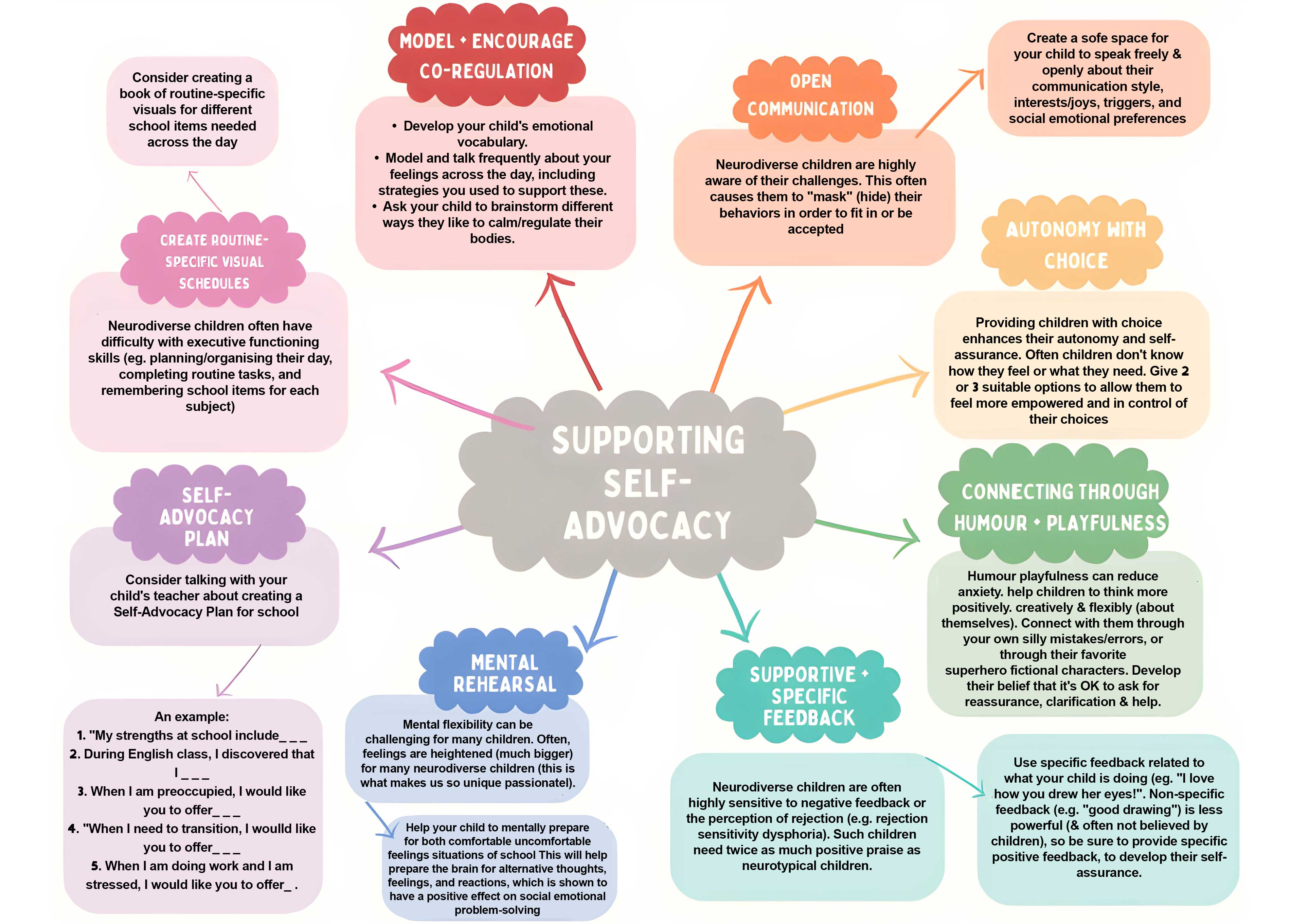

I think I need help…
but how do I ask?

Alycia Beaman
Speech and Language Therapist
DHA License Number: 93427730-002

Fostering self-advocacy in school-aged children with communication challenges.
What is self-advocacy?
Self-advocacy is the ability to communicate your needs. Children who self-advocate are more likely to thrive in all domains across school, home, and everyday life.
Self-advocacy examples:
- “Excuse me Miss___, I need help!”
- “I need to go to the toilet”
- “I find it hard to do____”
- “It helps me when you ____”
- “I’m not sure if you’re angry at what I said. Are you angry?”
- “I don’t like it when you say___”
- “I’m not sure I understand what you said, can you please repeat that?”
- “Miss___, I’m a little confused about why my friend did/said___, can you help me understand___?”
Barriers to developing strong self-advocacy skills
Children with neurological disabilities such as autism, ADHD, Dyslexia, Dyspraxia, OCD, and many more, often have difficulties with advocating for their needs. Reasons for this could be due to factors such as:
- Anxiety, Social anxiety
- Regulating their sensory needs and preferences (e.g. identifying their feelings and/or needs for movement or quiet spaces)
- Language challenges (including difficulty processing and understanding verbal information and/or interpreting implied social rules and expectations)
- Attention, cognitive abilities, and executive functioning challenges
- Rejection sensitivity dysphoria (RSD)
- Motor speech difficulties, including coordinating motor speech movements needed to produce individual speech sounds (referred to as Apraxia of Speech)
How do self-advocacy skills affect my child’s learning and communication?
Case Study:
- Meet Sarah. Sarah is 8 and autistic-ADHD. Sarah’s communication and learning challenges are often overlooked in the classroom. Sarah’s teacher would describe her as “softly spoken, with a strong interest in mathematics and creative writing”.
- Sarah likes mathematics, gymnastics, and reading fantasy books.
- Sarah dislikes swimming lessons, morning routines (for example, making breakfast and brushing teeth) and English (due to small-group discussions).
- Sarah often thinks that children are looking at her in a funny way, or that they don’t like her; her perception of the world is not always as it seems. Sarah often finds it difficult to manage expectations in both the school and at home setting.
- Remembering to pack her water bottle or hairbrush for sports class and swimming, planning and organising materials all school subjects, and asking clarifying questions are difficult for her. Sarah speaks eloquently, however, she often fumbles on her words or repeats the same word (“I have so many thoughts…they sometimes all come out in at once…in the wrong order, or not at all!”), particularly when she feels anxious and overwhelmed.
- Sarah doesn’t like to let her teacher or parents down. She also has difficulty identifying how she is feeling and what she needs. Instead of letting others know how she feels in the moment (for example, confused or unsure of how to complete tasks), she often sits quietly on her own and daydreams about her favourite fantasy books. Sarah often misses key instructions in the classroom and avoids tasks that she believes are “too hard or boring” due to her anxiety and difficulty managing certain tasks independently.
Adopting a strength-based approach to supporting your child’s self-advocacy skills
A strength based, affirmative approach is a powerful way to develop your child’s awareness of their strengths across all areas including academics/learning, occupational (functional skills), and social-emotional communication. Developing your child’s self-knowledge through supporting and affirming their strengths and needs will further develop their own self-confidence and self-advocacy skills.
Children, particularly neurodiverse populations, thrive when they are supported and accepted for who they are. Consider the following strategies as a guide for developing healthy + strong self-advocacy skills in your child.

Sources:
- Neurodiversity Affirming Practice (Adina Levy, 2023)
- Be the Change (Kristin Jones, 2023)
- The Explosive Child (Dr. Ross Greene, 1998)
- Emily Price (https://www.autisticslt.com/whatisautism)
- Cutting Edge Strategies to Improve Executive Function (Sarah Ward, 2022)
- How to deal with Rejection Sensitive Dysphoria (Megan Anna Neff, 2024) – https://neurodivergentinsights.com/blog/how-to-deal-with-rejection-sensitive-dysphoria
- Impact of an Interception-Based Program on Emotion Regulation in Autistic Children (Mahler, Kelly, et al., 2022)
- Empowering Students with Hidden Disabilities: A Path to Pride and Success. (Margo Vreeburg Izzo, and Lederick Horne, 2016)
- https://www.autismlevelup.com/


